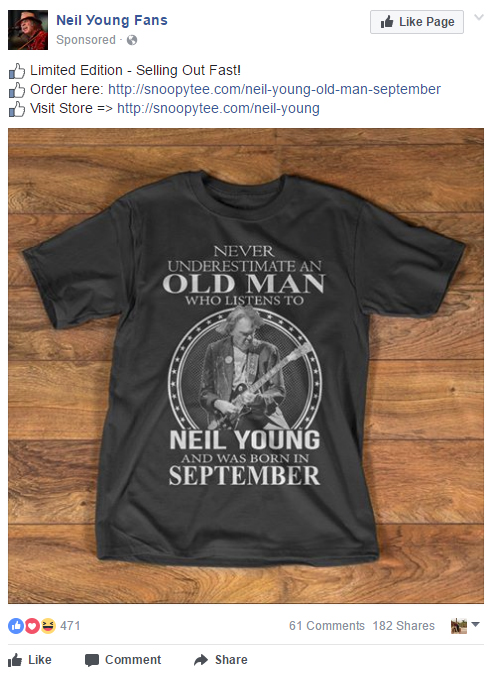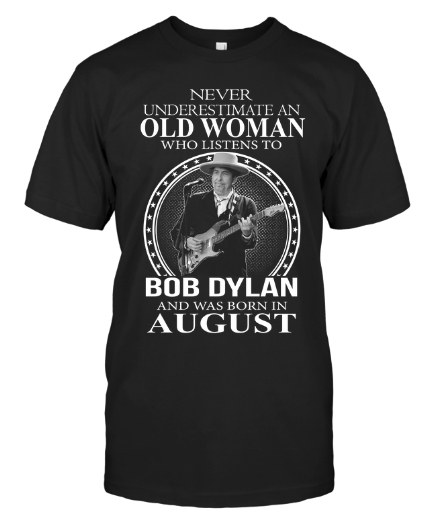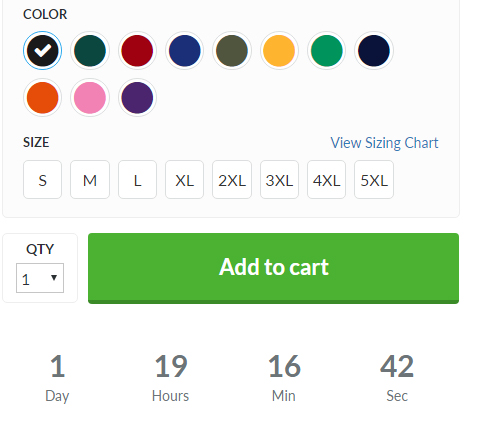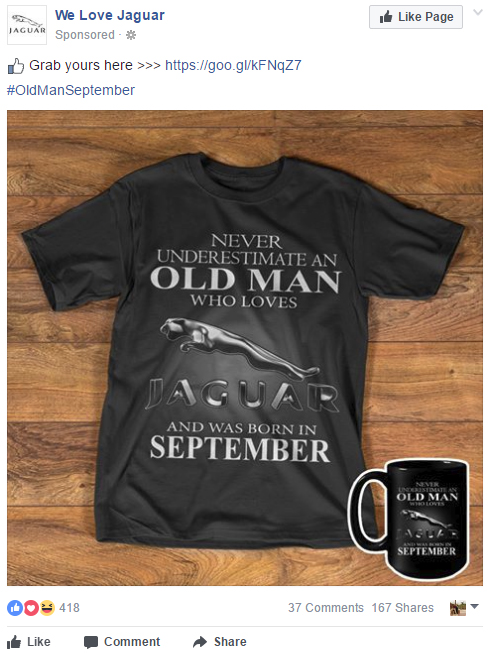It’s Okay to Be Antisocial
March 11th, 2021
Let me be the first to admit
that I am guilty. It was not that long ago that I was presenting seminars and
writing how social media advertising –
Facebook, in particular – was the greatest new development since the
Internet itself. As recently as four years ago, I was offering suggestions on
how to beat Facebook at its own game, using guerilla marketing techniques on
the platform. Sure, we all recognized that the intrusions into our personal
privacy were a bit creepy, but the ability to reach targeted marketing
prospects seemed to be worth the compromise. After all, when I was a child
watching television in the 1950’s, Captain Kangaroo would seamlessly segue from
visiting with Bunny Rabbit and Mr. Moose to selling Kellogg’s Rice Krispies and
Schwinn Bicycles, and what was wrong with that? Actually, there was plenty
wrong with it, prior to a Federal Trade Commission (FTC) ruling in 1969 that
prohibited children’s show hosts from directly promoting commercial products.
In the beginning, Facebook (originally called Facemash) seemed to
represent little more than an awkward attempt by nerdy Harvard undergrads with
a lack of actual social skills to meet young women at neighboring colleges.
When you think about it, even that original concept (an extension of the sexist
freshman photo books that had been sold on college campuses for decades) violated
the personal privacy of the young women whose photos were being used. From that
start, it did not take long for Facebook to reinvent itself into a money making
machine that would be built upon ever-increasing exploitations of personal
privacy.
On a personal level, I
stopped using Facebook in its entirety in early September of 2020. I actually
experienced what I would describe as a 7 to 10 day period of withdrawal,
missing the ability to stay in daily touch with countless friends both old and
new, but my sense of newly discovered freedom afterward was absolutely refreshing.
Over the course of the 10 years or so when I remained active on the platform, I
would often joke about how Facebook would “coincidentally” show me advertising
that was related to one of my recent posts or comments. When I, along with
millions of other people, started using ad blockers, Facebook started showing
paid posts in lieu of paid advertising. These paid posts represent advertising
content that is being disguised as editorial comment, even when that
advertising is originating with foreign governments or other unscrupulous
characters. The only way this can happen is by Facebook’s algorithms monitoring
every word that you type, just as craftily as the National Security Agency
(NSA) monitors the telephone conversations of known terrorists.
What made me see the light
was when I realized that Facebook’s business model was designed to amass huge
profits by intentionally sowing discord among its subscribers. Regardless of
where a person falls within an increasingly polarized political spectrum,
Facebook will show that person paid content that pours fuel on the fire while
demonizing those with opposing viewpoints. By being fed a one-sided diet that
is often based upon disinformation, subscribers’ opinions and beliefs are reinforced
in a manner that continually enhances the polarization. It should not require
an insurrectionist attack upon the U.S. Capitol for reasonable people to
understand that this represents a rapidly accelerating downward spiral.
Let us be clear that
Facebook advertising is not a bargain. In the early days, businesses would pay
to advertise on the platform in order to get users to “like” their page and
then see their posts. Soon afterward, advertisers needed to pay Facebook so
that even people who had already “liked” their page could actually see their
posts. Think about it. This means that you are paying Facebook so you can reach
your existing customers. Why would anybody pay to do that when there are
countless alternate means of reaching your existing customer base at a far
lesser cost? In the campground industry, some of the same people who willingly
pour money into Facebook advertising question the rationale for offering Good
Sam and similar discounts that they feel cut into thin profit margins. I would
rather offer a customer incentive than to take that same money and pour it into
Facebook’s coffers.
Yes, Facebook and the other
social media may be capable of sending you customers, but at what price and in
what environment? If a drug dealer approached you and said, “Yes, my main
business is selling heroin, but I can also send you customers”, would you do
business with that person? I doubt that many of us would enter into that sort
of deal with the devil.
The Federal Trade Commission
(yes, the same people who ruled that Captain Kangaroo should not be hawking
breakfast cereal) is currently proposing the breakup of Facebook, a process
that is long overdue. Facebook has steadily grown – with the acquisition of Instagram, WhatsApp and related platforms –
and a breakup of its monopoly would be the first such action since the breakup
of AT&T four decades ago.
Many of my peers in
the advertising industry will disagree with me, and I welcome that debate. I
remember the days when tobacco products were extensively advertised on
television, a practice that contributed to countless deaths. Today, I believe
that many other types of advertising should be banned because they either
mislead consumers or actually prey upon vulnerable segments of our population,
typically the elderly. These include the advertising of prescription
pharmaceuticals, advertising by class-action attorneys (think “mesothelioma”),
advertising directed at children (think about Saturday mornings), and
advertising directed at senior citizens (think about Medicare supplements and
the aforementioned pharmaceuticals). In the meantime, it is your decision as a
small business owner to decide whether or not to continue financing a business
model that you may agree is inherently wrong.
This post was written by Peter Pelland
Tags: Facebook, Facebook Advertising, Federal Trade Commission, social media
Posted in Business Ethics, Consumer Trends, Cyber Security, Facebook Tips, Marketing Strategies, Social Media |
It’s Never Too Late to Start Guarding Your Privacy
May 10th, 2017
I logged onto Facebook this morning, and I was immediately presented with a sponsored display ad hawking a t-shirt design that read, “Never underestimate an Old Man who listens to Neil Young and was born in September.” If I was naïve, I would see that ad and think, “Wow! This is my perfect t-shirt”, then order one. In the short time in which this ad has been displayed, it has been “liked” by 480 people, shared by 182 people (multiplying its reach at no charge to the advertiser), and has received 61 comments. Every one of those comments is from a man who confirms that he was born in September (usually adding a year from the 1950’s or 1960’s) and wants one of the shirts.

Is the fact that I was shown this advertising a coincidence? No way! It is custom-tailored to my identity. If I went to the order page and modified the URL, I could display any of a number of t-shirt designs based upon:
- The name of the performer.
- The birth month.
- Whether I was a man or a woman.
Here is an example:

To make the ad even more effective, the ordering page includes a countdown clock to create a false sense of urgency:

Depending upon how you view it, being presented these ads is either a brilliant use of Facebook’s marketing potential or an egregious violation of the personal privacy of Facebook users. In this case, I was being shown advertising that was based upon the disclosure of my gender, age, month of birth, and taste in music … all information that I had either voluntarily or unwittingly published on Facebook for either my friends or the world to see.
Yesterday, I was presented with another variation of the ad, based upon the fact that I drive a Jaguar … another fact that I had disclosed on Facebook. Now, I can also order a coffee mug! I am sure that I could modify the URL on the ordering page to change the design to show the name and logo of just about any car company. (On a side note, I have to wonder if these performers and companies are being paid royalties by the t-shirt company for use of their trademarks.)

You may think that this is all innocent, fun, and the price we pay for the otherwise free use of social media apps like Facebook, but there is more involved. I don’t know how many times I have seen friends on Facebook post a complete set of answers to 50 personal questions such as the name of their elementary school, their first phone number, name of their eldest sibling, and so forth. Whenever I see this being treated as a harmless and fun exercise, I cannot help but ask myself, “Are you insane?” If any of these questions and answers seems familiar, it is because they are among the same ones that are used as security tests on your online banking or an e-commerce site when you reset a password. Yes, the name of your first pet can lead to the theft of your identity!
You may have seen the recent news about the “Google Docs” phishing scam that proliferated in e-mails on May 4, 2017, said to be the most effective e-mail worm since the “I Love You” virus that caused havoc back in 2000. The scam was effective because it looked legitimate (it is so easy to copy the appearance of a legitimate website!), came from somebody you knew (rather than some random name chosen by a hacker in Belarus), and was spread through the type of shared online document that we have come to accept as routine. Even cautious recipients who would never open an e-mail attachment from a stranger thought that it was safe to download the same sort of document that appeared to have been shared via a cloud service by a known sender. All of these scams, whether relatively harmless or downright nefarious, play upon the human willingness to trust those with access to our personal information.
At the moment, leading into Mother’s Day 2017, there are several gift card scams that are proliferating on Facebook almost faster than they can be identified and taken down. One purports to offer a $50.00 coupon for use at Lowe’s home improvement stores in exchange for taking a short survey, in which you will be disclosing a wealth of personal information. Another purports to offer a $75.00 coupon to Bed Bath & Beyond, the same sort of scam that attempts to gather your personal information for exploitation later.
As I have said in the title of this article, it is never too late to start guarding your privacy. In fact, today is the best day to begin!
This post was written by Peter Pelland
Tags: Facebook Advertising, Facebook scams, identify theft, online scams, phishing scams
Posted in Consumer Trends, Cyber Security, Facebook Tips, Scams |
Advertising Messages That Generate Immediate Response
March 28th, 2014
Most advertising is intended to build long-term brand awareness and customer loyalty, factors that are not measurable in immediate sales numbers. At other times, advertising is intended to generate a more immediate short-term response. This is the kind of advertising that is typified by the weekly department store or supermarket circular, with a list of specific items and prices. For a campground owner, both types of advertising will work, although short-term offers are generally far more effective after long-term brand awareness has already kicked in.
Let’s say it’s a Thursday morning, and you have 8 vacant campsites and 2 rentals available for the upcoming weekend. Leaving them unoccupied is lost income, and it is time to spring into action. If your average camping fee is $40.00 per night and your cabin rentals are $80.00 per night, just those vacancies on a Friday and Saturday night represent $960.00 in income, prior to any residual sales in your store, snack bar, game room, and elsewhere.
There are many cost-effective ways to reach people who are likely to respond to your offers, including newsletters, Tweets, and Facebook posts. The prerequisite is that you need a significant number of newsletter subscribers or followers on social media like Twitter or Facebook. If few people see your message, even an extraordinarily high response rate will generate little in terms of actual results. For a small business, that magic minimum number is generally in the 800 – 1,000 person range. With those 8 sites and 2 rentals to book, if your message reaches 1,000 people, you only need to attain a very realistic 1% rate of response. Building a significant number of people who will be likely to respond to your offers takes a combination of time and ingenuity, with ingenuity speeding up the process.
Building Your Numbers
Your first step is to grow the numbers of people who are subscribing to your newsletter or following your social media posts. Build your newsletter base by asking people to opt in during the online reservation process, asking them to “join your list” when they visit your booth at camping shows (preferably in real time, providing them with a laptop or tablet with Internet access), and including a sign-up form on your website. On Facebook, give people an incentive to “like” your page (but do not use “fangating” to force them to like the page in order to obtain the incentive). Encourage your followers to “share” and “retweet” your posts, helping to spread your message. Facebook Advertising is a highly effective and fairly inexpensive way to expand your reach. Just be sure to choose your demographics very carefully and always pay per click, not per impression. Of course, links to your social media pages should always be prominently featured on your website.
Very importantly, once you have gotten people to agree to receive your newsletter or to follow your posts, you must not abuse nor squander that privilege. Always provide timely and useful information that answers the reader’s question, “What’s in it for me?” Engage your followers, and get them excited about what you have to say. That generally means that you are providing them with some sort of offer that makes them feel like an “insider” who is receiving special treatment. Ideally, they will like what they read so much that they will look forward to hearing from you on a regular basis. Incidentally, that “regular basis” should usually not exceed once or twice a month for newsletters, three times a week for Facebook posts, and once or twice a day for Tweets. On one hand, you want to keep in touch, in order to avoid being forgotten. On the other hand, you do not want to become like an elderly uncle who seems to visit so often that he wears out his welcome. You work too hard to build a base of followers to see them unsubscribe or “unlike” your page.

Crafting Messages with a Sense of Urgency
Once you have the numbers of people within reach, it is time to present your followers with messages that will generate the desired response. There are generally three ways to accomplish this:
- “Use it or lose it” limited time offers.
- Limited availability.
- Special bonus incentives.
Vacancies “this weekend” definitely constitute limited time offers, and “only three sites available” represents limited availability. Limited time offers have been a staple of price/item advertising for decades. Retail sales always have expiration dates, with occasional exceptions such as JC Penney’s disastrous attempt at giving itself a makeover and “retraining” its customers back in 2012. Even auctions on eBay generally show last-minute surges in bidding in the closing minutes (and seconds) of the sale of a popular item. On the other hand, if you have purchased airline tickets recently, you may have noticed that the airlines will often indicate countdown numbers such as the “last 2 seats” (true or untrue) for a given flight. That is an example of generating sales based upon limited availability.
Perhaps even more effective are special bonus incentives. In fact, special bonus incentives can be remarkably effective when combined with either a limited time offer or limited availability. What kind of incentive could help to persuade people to reserve those vacant sites? Experiment with different offers to find ones that fit. Examples might include free early check-in (which costs you nothing), a free bundle of firewood (particularly popular with tent sites), waiving the fee for additional family members (within limits), or a free one-hour boat rental (during certain times when you know that your boats would likely be tied to a dock). Maybe list three bonus options, and let people choose the one that they want. It has been proven that there is always magic in giving people a choice of three.
Rich or poor, from all walks of life, every human being likes to get a deal … or at least be given that impression. Once again, your ingenuity comes into play to make your advertising message both compelling and successful. Give it a try!
This post was written by Peter Pelland
Tags: customer loyalty, Facebook Advertising, last minute offers, limited availability, limited time offers, sales incentives
Posted in Guerrilla Marketing, Marketing Strategies, Social Media |
|





